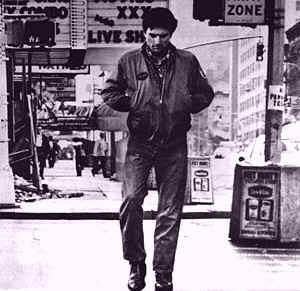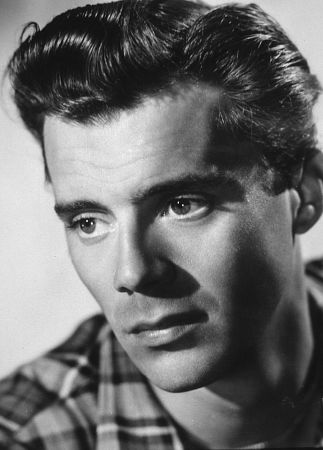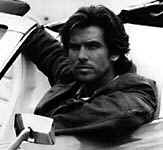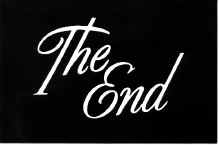11. London
![]()
Crisis 2001 Tour
The thinking man's alternative to a small red sportscar
11. London |
Crisis 2001 Tour The thinking man's alternative to a small red sportscar |
 |
Method acting school. 6 - 17 August Links:
|

|
| Dispatch
from The Method Studio:
In just two weeks, The Method Studio succeeded in giving us a real taste of what actors actually do for a living. Giles Foreman, Paul Miller and Chris Simpson (all of whom, inexplicably, were men) managed to turn eleven ramshackle individuals who were abysmally dire actors into a finely-honed group of individuals who were merely dire actors. Each of us learnt a little and, yes, I can say that I'm proud to be dire. The Hadden Theory of Acting As far as I can see, we covered more or less three areas, set out below. Any actors are welcome to scorn my pathetic na´vety.
|
|
| 1. |  "The
Method". Mainly a series of "methodological
questions" that the actor asks about his character in order to
develop a consistent logic for his actions on stage. These questions
sound simple e.g. "What do I want?", "Why do I want
it?", "How will I get it?", "What do I have to
overcome in order to get it?"; however, they hide a wealth of
complexity. The idea behind them is to "play the action"
(i.e. the objective) rather than "play the emotion", which
gets boring pretty quickly. It was fascinating to see how Giles et
al used these questions to turn bare text into something very
compelling to watch. "The
Method". Mainly a series of "methodological
questions" that the actor asks about his character in order to
develop a consistent logic for his actions on stage. These questions
sound simple e.g. "What do I want?", "Why do I want
it?", "How will I get it?", "What do I have to
overcome in order to get it?"; however, they hide a wealth of
complexity. The idea behind them is to "play the action"
(i.e. the objective) rather than "play the emotion", which
gets boring pretty quickly. It was fascinating to see how Giles et
al used these questions to turn bare text into something very
compelling to watch.
(NB this is useful in life too!) |
| . | |
 2.
Transparency. Obviously, an actor uses his own experience as
source material for developing a character. The trick is to access
and modify this experience to map it across to the character without
your own censorship getting in the way. This means that you have to
develop a kind of openness, or transparency, a sense of awareness of
what's going on in the action. This reaction - or being in the
moment - in a way means giving more importance to the action than to
yourself. To do all this, you have to enter the character's world in
an incredibly detailed way and this - I can tell you - is bloody
difficult. 2.
Transparency. Obviously, an actor uses his own experience as
source material for developing a character. The trick is to access
and modify this experience to map it across to the character without
your own censorship getting in the way. This means that you have to
develop a kind of openness, or transparency, a sense of awareness of
what's going on in the action. This reaction - or being in the
moment - in a way means giving more importance to the action than to
yourself. To do all this, you have to enter the character's world in
an incredibly detailed way and this - I can tell you - is bloody
difficult.
(NB this is useful in life too!) |
|
| . | |
| 3. |
 Movement. Having created a compelling inner life for the
character with 1 and 2 above, the next trick is to convert it into
physical and vocal movement. My God, what this entails! Situps, star
jumps, handstands, crawling about the floor, eating 20-pence pieces,
making strange quivering noises, potentially felonous use of the tongue and
generally weird behaviour. Mind you, I don't think I did badly for a
40-year-old. Movement. Having created a compelling inner life for the
character with 1 and 2 above, the next trick is to convert it into
physical and vocal movement. My God, what this entails! Situps, star
jumps, handstands, crawling about the floor, eating 20-pence pieces,
making strange quivering noises, potentially felonous use of the tongue and
generally weird behaviour. Mind you, I don't think I did badly for a
40-year-old.
(NB this is useful in life too!) |
|
|
|
| The
Ensemble Piece
As the music climaxed, so did the lady's client, just as the pregnant woman gave birth and the sociopath had a fatal heart attack. In the confusion I had an excellent and prolonged insight into the model's acting assets (thank you, Alex). My character preparation had included hanging around Holborn Tube "being" my horny 14-year-old, Dennis-The-Menace hairdo, undersized denim jacket, trousers rolled up over shins, chewing gum. I tried my hardest to lasciviate pubescently at any passing woman. This was an interesting - if potentially hazardous - preparation for my role. The Scene
|
|
|
|
|
|
|
|
